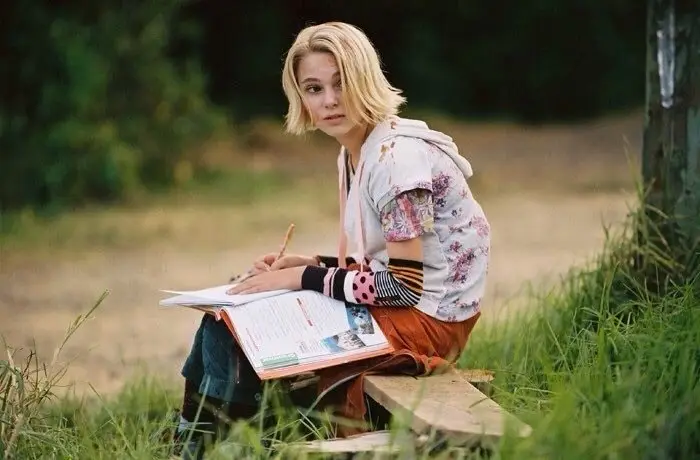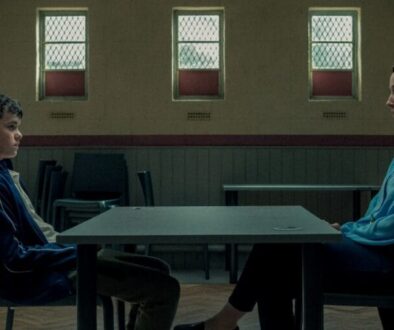‘Bridge to Terabithia’ Destroyed Me: The Painful Beauty of Friendship and Loss
Hey everyone! This is Pixie Quill again hehe….. Watched “Bridge to Terabithia” today and being a Psychology major I couldn’t help but write about the psychological aspects of the movie. So here it is:
The movie “Bridge to Terabithia,” based on Katherine Paterson’s poignant novel, invites viewers into a world where childhood’s vibrant imagination collides with the harsh realities of life. Through the lens of young Jess Aarons, the film delicately explores themes such as friendship, creativity, grief, and the quest for identity. It portrays how Jess’s formative experiences shape his psychological development, leaving an indelible mark on his emotional landscape, both in the immediate aftermath of the story and into adulthood. This essay delves into the psycho-emotional intricacies presented in “Bridge to Terabithia” and examines the lasting psychological effects of Jess’s experiences.
Imagination as a Coping Mechanism
At the heart of Jess’s character lies a rich imagination that serves as a vital coping mechanism. Living in a world often fraught with familial neglect and bullying, Jess creates an escape through the fantastical realm of Terabithia. In this secluded sanctuary, he transforms from an insecure boy into a valiant king, feeling valued and empowered. The community he builds with Leslie Burke within Terabithia allows him to explore his creativity, resilience, and emotional strength, culminating in a bond that nurtures his growth. Through their imaginative play, Jess finds solace and emotional support amidst the chaos of his external life. This vibrant friendship fosters an emotional connection that helps him navigate the complexities of childhood. Jess’s visits to Terabithia signify more than mere escapism; they represent a sanctuary where he is unbound from the weight of reality, allowing him to develop creative problem-solving skills and emotional resilience. Ultimately, this blend of imagination and companionship becomes a crucial buffer against the psychological stresses he faces.

Friendship and Emotional Connection
Leslie’s companionship is paramount in Jess’s emotional development. Through their friendship, Jess discovers a form of connection that is largely absent from his family and school experiences. Leslie functions as a catalyst for Jess’s emotional intelligence, invoking feelings of trust and acceptance that he has not experienced before. The unconditional support that she offers forms a secure base for him, fostering an understanding of healthy emotional expression and core values such as empathy and courage.
However, the abrupt loss of Leslie thrusts Jess into an abyss of grief that challenges his emotional fortitude. Following her tragic death, Jess grapples with intense feelings of loss and guilt, emotions that are profoundly overwhelming for someone of his age. This experience forces Jess to confront the reality of losing someone who believed in him and cherished their shared adventures in Terabithia.
Family Dynamics and Neglect
The family dynamics portrayed in the film underscore Jess’s feelings of inadequacy and neglect. As the oldest son, he often feels overshadowed by his younger sisters and underappreciated by his parents, particularly his father, who appears indifferent to Jess’s aspirations. This family environment significantly contributes to his low self-esteem, instilling in him a belief that he must seek approval outside of his home.
Jess’s desire for affection and recognition fuels an internal struggle that emphasizes his feelings of being unloved. This dynamic becomes pertinent as he navigates his relationship with Leslie, noting how their friendship offers the emotional validation he desperately craves. The contrast between his supportive friendship with Leslie and the neglect he faces at home exemplifies the psychological scar that can result from familial dynamics, impacting his sense of self-worth and his understanding of healthy relationships.

Grief and Trauma
The sudden passing of Leslie serves as a profound trauma for Jess. Children often struggle to comprehend and process grief, and Jess’s initial reactions—confusion and guilt—reflect common emotional challenges faced by youth coping with loss. Without adequate emotional support to navigate his feelings, Jess’s response to Leslie’s death may lead to confusion about grief itself, leaving him with lingering doubts about his emotions and experiences.
Grief at such a tender age can fester into unresolved trauma if not addressed early on. This trajectory may lead to psychological issues, including depression and anxiety, which could hinder Jess’s ability to form meaningful relationships and lead a fulfilling life as an adult. Thus, the emotional aftermath of losing Leslie catalyzes a significant turning point in Jess’s life.
Psychological Issues Jess Could Face Growing Up
The ramifications of Jess’s upbringing and experiences can manifest in several psychological challenges as he matures :
- Low Self-Esteem and Insecurity: Growing up under familial neglect, Jess may internalize a sense of inadequacy that could dent his confidence well into adulthood. The echoes of feeling undervalued at home could shadow his relationships and career choices, fostering a belief that he may not deserve success or happiness.
- Difficulty with Emotional Expression: Jess’s father’s stoic demeanor could discourage open emotional expression, leading to emotional repression for Jess. This repression might cultivate challenges in forming deep connections with others, as he may struggle to verbalize and contextualize his feelings.
- Unresolved Grief and Trauma: Leslie’s death could lead to unresolved grief, potentially appearing in adulthood as depression, anxiety, or pervasive feelings of guilt. If Jess does not confront and work through his feelings about Leslie’s loss, they could linger and complicate his emotional landscape.
- Fear of Loss or Abandonment: Experiencing profound loss at a young age could instill a fear within Jess, discouraging him from forming close relationships in the future. He may fear that intimacy equals vulnerability and, as a result, sacrifice potential for deeper connections.
- Social Withdrawal: As Jess internalizes experiences of bullying and family neglect, he may develop social anxiety. The voice of insecurity can loom large, triggering feelings of isolation and detachment from peers .
- Over-Reliance on Imagination: While imagination has served as a powerful tool for coping, an overdependence on fantasy could hinder Jess’s ability to confront reality. This might lead to escapism, prompting a disengagement from real-world responsibilities and relationships as an adult.
Protective and Healing Factors
Despite the potential challenges Jess may face, several protective factors could guide him through difficulties :
- Art and Creativity: Jess’s talent for drawing represents a crucial outlet for self-expression and healing. Engaging in creative processes could offer him solace as he explores and communicates his feelings surrounding loss.
- Supportive Relationships: Building new friendships and finding mentorships in later life could provide the emotional support he lacked during childhood. Developing connections with empathetic individuals can foster resilience and promote healing from past wounds.
- Resilience from Leslie’s Influence: Leslie’s unwavering belief in Jess and her encouragement to embrace life will likely resonate within him throughout his journey. Her spirit could serve as a guiding force, motivating him to confront challenges head-on and pursue his passions fearlessly.

Conclusion
“Bridge to Terabithia” encapsulates the profound impact that childhood relationships, grief, and family dynamics exert on psychological development. Jess Aarons’ experiences, marked by the duality of joy and sorrow, highlight the essential role of emotional support in fostering resilience during turbulent times. Without appropriate assistance, Jess may face significant challenges, including unresolved grief, low self-esteem, and difficulties forming lasting connections. However, the steadfast creativity, resilience, and invaluable lessons embodied by Leslie might empower him to navigate the complexities of life, evolving into a compassionate and emotionally intelligent individual who learns to embrace the world—both its trials and wonders.
Ultimately, the exploration of Jess’s psychological landscape reveals a narrative rich with human experiences that resonate with viewers, reminding us of the triumphs and tribulations inherent to growing up. Through these themes, “Bridge to Terabithia” stands as a poignant exploration of childhood, reminding us of the delicate balance between imagination, friendship, and the bittersweet nature of loss and love.
Discover more from Ge-erdy Verse
Subscribe to get the latest posts sent to your email.



![20250325_223818-COLLAGE[1] 20250325_223818-COLLAGE[1]](https://geerdyverse.com/wp-content/uploads/2025/03/20250325_223818-COLLAGE1-1024x769-394x330.jpg)